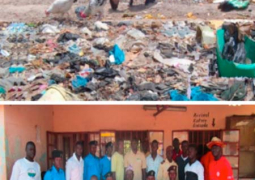Rural areas in The Gambia are in dire need of basic infrastructure and public amenities.
Improving the social and economic sectors of rural settlers would boost their living standard.
Building good feeder roads, electricity supply, more high schools and provision of primary health care for them are necessities they equally deserve.
Rural dwellers need more attention to change their poor living condition.
On the economic front, we can upgrade the weekly markets commonly known as lumos to boost economic activities in rural areas.
It might sound as an understatement if one says that many rural areas in the country are being neglected in terms of development.
However, their level of poverty and poor infrastructure situation speaks volumes of their isolation in terms of development.
In some rural districts, their roads are a no go area, especially during the rainy season; whilst for some other areas, the people do not have the belief that in their life time the rural electrification project will reach them.
Indeed, for some rural people, when they fall sick, despite their poverty, they would still prefer to go to the pharmacy than go to public health facilities, for reasons best known to them.
These therefore call for a new approach to rural development, if we are to attain our development aspirations such as the MDGs, and even Vision 2020.
Rural development encompasses a range of approaches and activities that aim to improve the welfare and livelihoods of people living in rural areas.
Developing the rural areas would not only better the living condition of those residing over there, but would also discourage rural-urban migration.
Moreover, afterall they are also tax payers like any other Gambian living either in the Greater Banjul area or in some of the other provincial growth centres.
The plight of our rural people should, therefore, be taken into consideration, in all our development endeavours.





